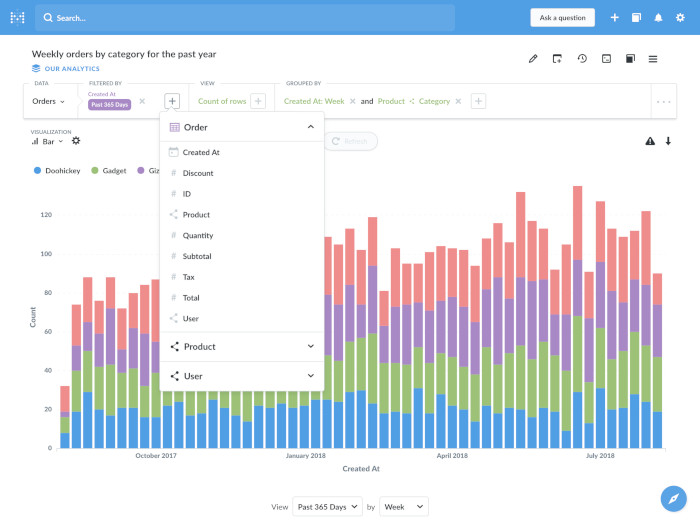Aggregation expressions can use bothuser-defined and system variables.
Variables can hold any BSON type data.To access the value of the variable, prefix the variable name withdouble dollar signs ($$); i.e. '$$<variable>'.
Metabase is the easy, open source way for everyone in your company to ask questions and learn from data. 5 minute setup (We're not kidding); Let anyone on your team ask questions without knowing SQL. Metabase backend implemented using MongoDB. To install Metabase::Index::MongoDB, copy and paste the appropriate command in to your terminal. How does MongoDB work in Metabase Because MongoDB contains unstructured data, Metabase takes a different approach to syncing your database’s metadata. To get a sense of the schema, Metabase will scan the first 200 documents of each collection in your MongoDB. Browse other questions tagged mongodb metabase or ask your own question. The Overflow Blog Level Up: Mastering statistics with Python – part 5. Podcast 319: Building a bug bounty program for the Pentagon. Featured on Meta Introducing Outdated Answers project. Survey questions for outdated answers. How to query MongoDB with.
If the variable references an object, to access a specific field in theobject, use the dot notation; i.e. '$$<variable>.<field>'.
User Variables¶
User variable names can contain the ascii characters [_a-zA-Z0-9]and any non-ascii character.

Metabase Mongodb Date

User variable names must begin with a lowercase ascii letter [a-z]or a non-ascii character.
Metabase Mongodb Array
System Variables¶

Metabase Mongodb Join
MongoDB offers the following system variables:
Metabase Mongodb Tutorial
Description | |
|---|---|
A variable that returns the current datetime value. | |
| A variable that returns the current timestamp value.
|
| References the root document, i.e. the top-level document, currentlybeing processed in the aggregation pipeline stage. |
References the start of the field path being processed in theaggregation pipeline stage. Unless documented otherwise, allstages start with
| |
A variable which evaluates to the missing value. Allows for theconditional exclusion of fields. In a For an example of its usage, see Conditionally Exclude Fields. | |
| One of the allowed results of a $redact expression. |
One of the allowed results of a $redact expression. | |
One of the allowed results of a $redact expression. |
